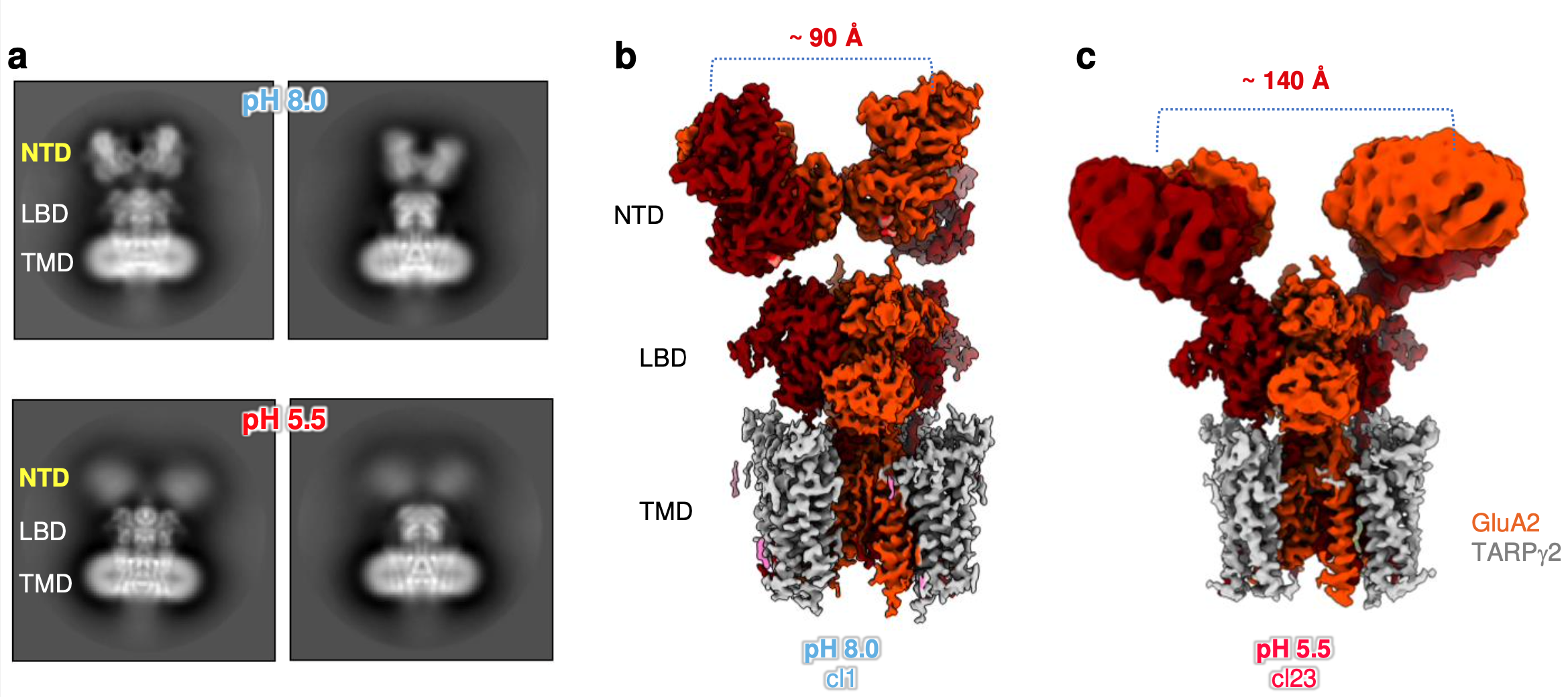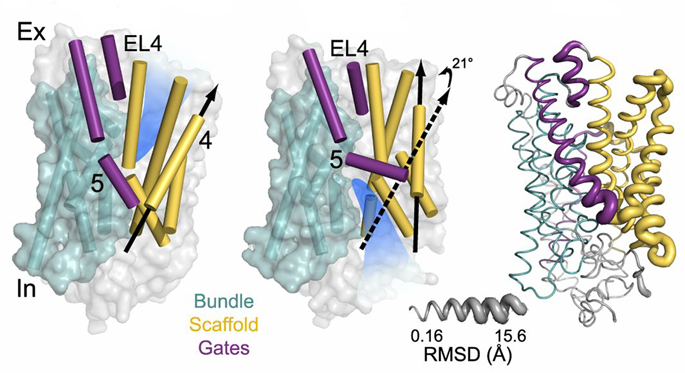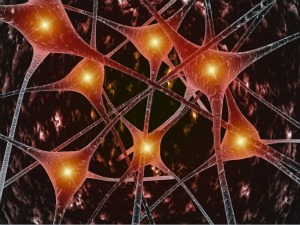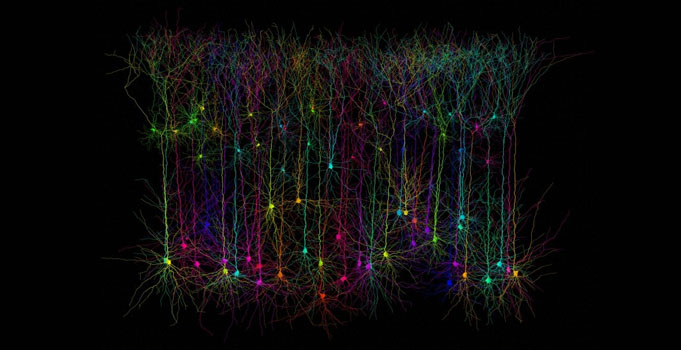Neurotransmitter
-

Research Snapshot: Protons can tune synaptic signaling by changing the shape of a protein receptor
Research from Teru Nakagawa, professor of molecular physiology and biophysics, describes intricacies of normal brain function with implications for our understanding of brain injury and recovery: A decrease in pH can modify a neurotransmitter receptor’s structure, thereby modulating its location and kinetics. Read MoreAug 14, 2024
-

New view of transporter dynamics
New insights to the workings of a protein that moves neurotransmitters across the nerve cell membrane could aid the design of more effective antidepressants. Read MoreOct 23, 2014
-

New view of neurotransmitter transport
Dynamic measurements of the bacterial leucine transporter shed light on the transporters that play roles in neuropsychiatric and addiction disorders. Read MoreApr 24, 2014
-

Neurotransmitter’s role in bone balance
Removal of the neurotransmitter norepinephrine from the space outside cells plays an important role in the regulation of bone remodeling. Read MoreNov 7, 2013
-

New clue to ADHD
A rare genetic change adds support to the idea that altered dopamine signaling is a key risk factor for ADHD. Read MoreMay 15, 2012